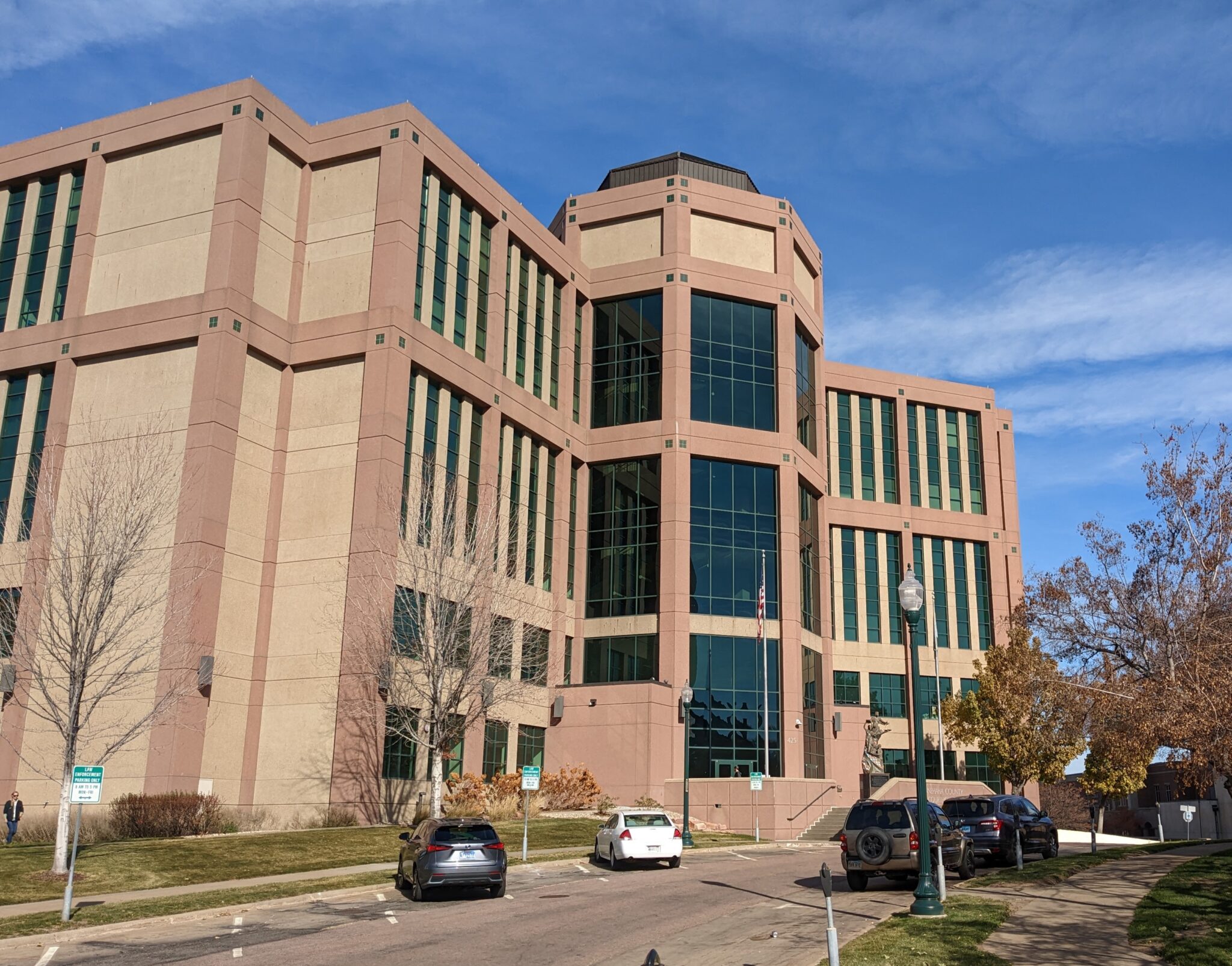
John Hult and Joshua Haiar/South Dakota Searchlight
The trial date for a lawsuit against South Dakota’s abortion-rights ballot measure was not added to a court calendar, despite a signed order from a judge saying the trial would begin next week.
That leaves the date of the trial in limbo even as early and absentee voting will begin Friday.
Judge John Pekas signed a scheduling order on Aug. 9 saying the trial would take place during the week of Sept. 23 in Sioux Falls.
This week, Pekas emailed the parties in the case and said, without further explanation, “this matter must be scheduled through court administration” and “my schedule is filling up quickly.”
Minnehaha County Deputy Court Clerk Bryce Kummer was among the email recipients. He replied by asking how much time is needed for the trial and said if the parties could give him an idea, he could offer the next available options on the judge’s calendar.
Jim Leach, the lawyer for the abortion-rights side, responded with confusion, saying it was his understanding the trial would start Monday, Sept. 23. “Am I mistaken?” he wrote.
Kummer replied that he was “not aware of any trial being scheduled in this case.”
The lawyer for the anti-abortion side, Sara Frankenstein, filed a formal objection to moving the trial date. She also requested that if the trial date is moved, it should be scheduled in time to conclude before Election Day on Nov. 5.
Leslee Unruh is co-chair of the Life Defense Fund, which filed the lawsuit. She had no further information from the court as of Wednesday afternoon.
“We expected the trial to be held next week in accordance with the court’s scheduling order,” Unruh said in a statement. “We are waiting for further direction on how the court will proceed with our trial in recent light of the court’s scheduling conflicts.”
The lawsuit centers around allegations from the Life Defense Fund that petition circulators violated laws while gathering signatures to put the abortion-rights measure on the ballot. Life Defense Fund hopes to invalidate the measure, even though it’s too late to remove it from ballots.
The petition circulators worked for a group called Dakotans for Health, led by Rick Weiland.
“We are now just waiting to see what the court does next,” Weiland said.
Current state law bans abortions except when necessary to “preserve the life of the pregnant female.”
The ballot measure, Amendment G, would prohibit regulation of abortion during the first trimester. In the second trimester, regulations would be allowed if they are reasonably related to the pregnant woman’s physical health. During the third trimester, abortion could be regulated or prohibited, except when necessary to preserve the life or health of the woman, as determined by her physician’s medical judgment.
